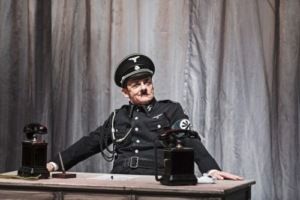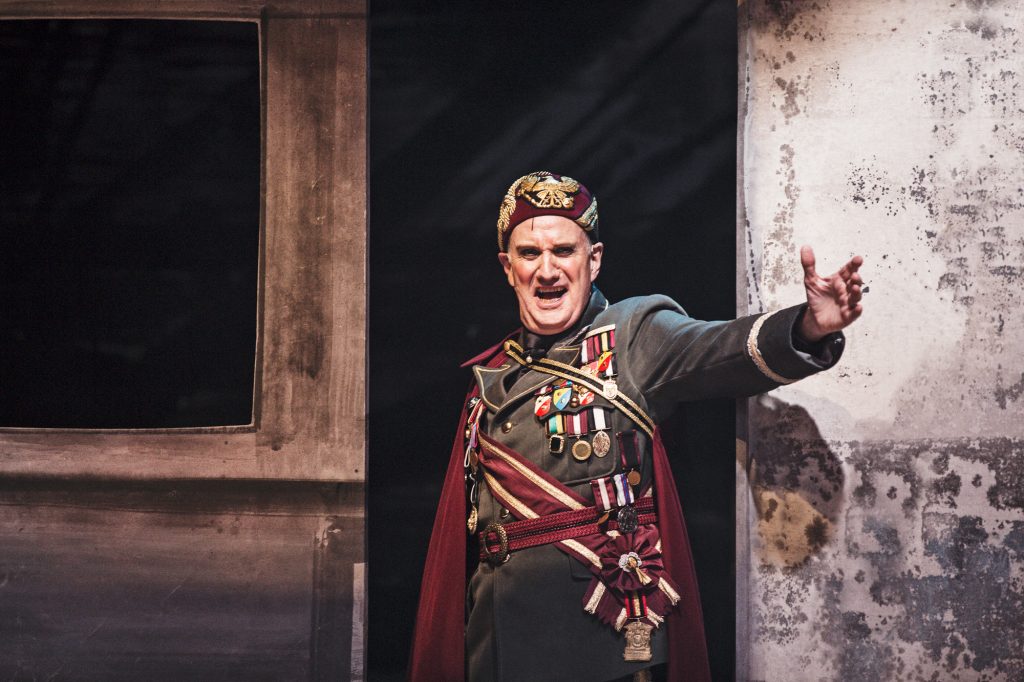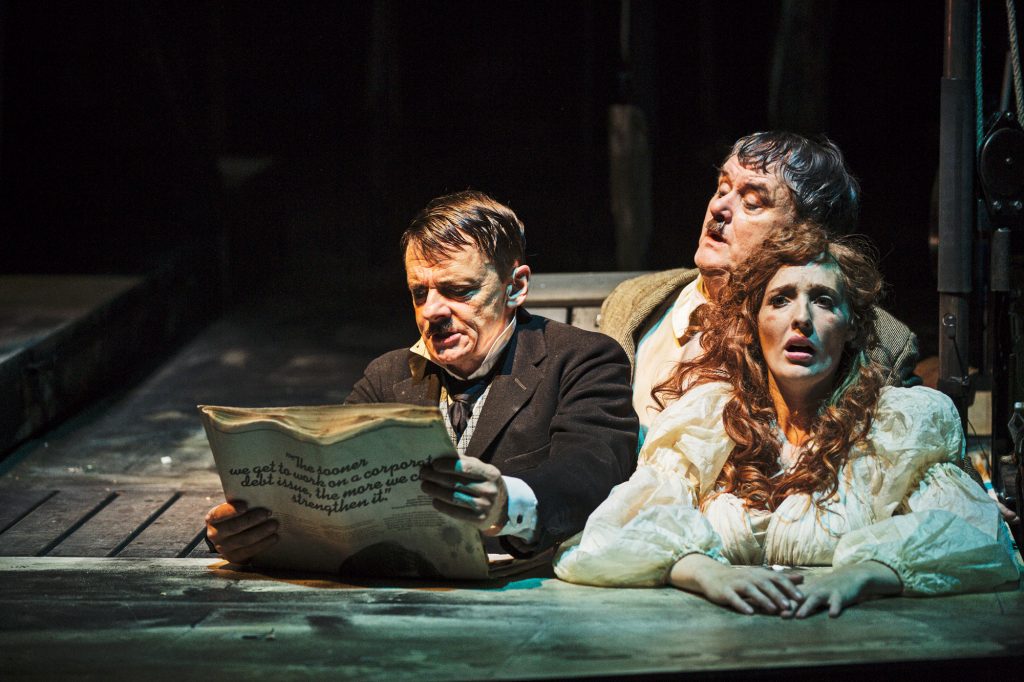Things to do
CPH STAGE Performance Review: ‘The Great Dictator’
This article is more than 7 years old.
★★★★★☆

‘The Great Dictator’ manages to capture the essence of Chaplin’s original (all photos: Nørrebro Teater)
The old adage goes don’t fix it if it isn’t broken. Such words are of great relevance when someone decides to tackle one of the classics with a new adaptation.
‘The Great Dictator’ directed by Nikolaj Cederholm will probably face similar scepticism as it is, after all, a theatrical staging of Charlie Chaplin’s 1940 masterpiece. Despite the pressure that comes with taking on a work such as this, on a whole ‘The Great Dictator’ works.
Sticking to the script
The adaptation stays very faithful to the original, beginning on a battlefield somewhere on the Western Front where we are introduced to a Jewish soldier (Olaf Johannessen) who saves the life of the wounded pilot Schultz (Asbjørn Krogh Nissen) before crashing a plane, resulting in the soldier suffering from memory loss.
Some 20 years later in the nation of Tomainia, the soldier returns to his former profession as a barber and the country is under the harsh rule of Chaplin’s Hitler stand-in Adenoid Hynkel (also Johannessen). We learn that Schultz has become a commander in the Tomainian army and are introduced to other key characters such as the barber’s love interest Hannah (Julie Agnete Vang).
The story goes on to show the persecution that the Jews face and the struggle for survival felt by the barber and his comrades as well as the tyranny of Hynkel’s rule.
In addition to the Hitler stand-in we are also introduced to caricatures of Mussolini, Goebbels and Göring.
The spirit of Chaplin
Perhaps what is most impressive about ‘The Great Dictator’ is its achievement of capturing Chaplin’s spirit, with the entire cast delivering energetic slapstick comedy. Although slapstick may have died long ago as far as modern cinema is concerned, it is done to fantastic effect here, keeping in line perfectly with Chaplin’s film.
The cast also deserves praise for some outstanding performances. Johannessen in particular was impressive as Hynkel and the Barber, bringing subtle emotional cues that separated the two characters distinctively. Krogh Nissen is also fantastic as Schultz, providing the moral middle ground between the evil of Hynkel and the good of the Jews. Another performance that deserves singling out is that of Anders Budde Christensen for his role as the squeaky-voiced Garbage, the surrogate for Goebbels.
Equal praise must be heaped on to musical composition by Olivier Antunes. His music brings all the action together and provides emotional catharsis during key scenes.
Originality goes a long way
If there is one criticism that I feel the need to levy on ‘The Great Dictator’ it is that there is of a lack of originality. While enjoyable, this production doesn’t bring many new elements to that of the original.
The argument could be made that the themes of the original are as relevant today as ever, with rising tensions between Russia and the West, the situation in Syria and the presidency of Donald Trump bringing ever-increasing uncertainty. But it feels somewhat lazy to stage an adaptation of an already near-universally loved work. It would have been much more daring to come up with something original that challenges the problems of the world today.
Chaplin said later in his life that he would have never made ‘The Great Dictator’ had he known how horrific the acts of Nazi Germany would eventually become. But with his film, he ultimately proved that comedy is a great tool for combatting tyrants and facing relevant issues.
That is precisely why Cederholm’s take on ‘The Great Dictator’ is a success, but it could have ultimately done with something more contemporary.












































